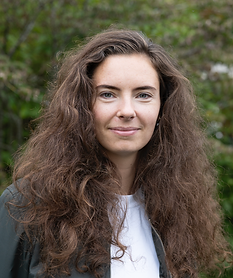
Research & Innovation
WYSS ACADEMY COMPETENCE CENTERS
Our Research & Innovation Teams
The elaboration of a shared understanding of the social-environmental system, its dynamics and trajectories are an important basis to negotiate a common vision for the future. Our professors and their teams engage in fundamental and applied research, supported by the Transdisciplinary Research Coordinator and closely collaborating with our regional hubs. The interdisciplinary teams also strive to deliver key insights to policymakers at all levels, closely working with the Policy Outreach & Synthesis unit of the Wyss Academy.
Our research currently comprises six fields which are relevant to addressing major challenges identified by the Wyss Academy:
RESEARCH & INNOVATION TEAM ON
Climate Scenarios for Sustainable Development

Prof. Dr. Edouard Davin
Professor of Climate Scenarios for Sustainable Development
Prof. Dr. Edouard Davin is a climate scientist studying the interactions between the terrestrial biosphere, land use and climate. He has extensive experience in both global and regional climate modelling and a core area of his work has been to integrate the impact of land use change in past and future climate scenarios. Ultimately, his work aims to demonstrate the key role of land use and land management in the transformation toward sustainable futures. He served as a Lead Author in the Intergovernmental Panel on Climate Change (IPCC) Special Report on Climate Change and Land. His professorship at the Wyss Academy is affiliated with the Climate and Environmental Physics division and the Oeschger Centre for Climate Change Research at the University of Bern.
Research Team
Climate Scenarios for Sustainable Development
Our Research
We are a team of researchers exploring the intersection of climate, land use, and biodiversity. We strive to a better understanding of the terrestrial biosphere's role in the climate system. Our mission is to produce knowledge that can be directly used in creating solutions for tackling climate and biodiversity crises. Our work is guided by three overarching questions: 1) What are the risks of climate change to terrestrial ecosystems and people? 2) How can Nature-based approaches, among other strategies, address these risks? 3) What is the potential for scaling up these strategies, and what are the resulting co-benefits and tradeoffs with sustainable development objectives?
RESEARCH & INNOVATION TEAM ON
Land Systems and Sustainability Transformations

Prof. Dr. Julie Zähringer
Professor of Land Systems and Sustainability Transformations
Prof. Dr. Julie Zähringer is an integrative environmental scientist with a PhD in geography and sustainable development. She has a strong interest in socio-ecological systems research in least-developed countries. In her current research, she focuses on the interlinkages between land use changes, ecosystem services, and human well-being in the context of land investments and conservation in East Africa and South-East Asia. She is especially curious to understand what ecosystem service benefits can be obtained by land users from different types of usage, and how the link between ecosystem services and human wellbeing has changed over time. In addition, she investigates how land investments directly and indirectly affect land use, and the implications of these land use changes for poverty alleviation and sustainable development.
Research Team
Land Systems and Sustainability Transformations

Dr. Dominique Schmid
Postdoctoral Researcher, Transformational Research
Our Research
The question of how societies use available land is fundamental to finding durable solutions that can stem the loss of biodiversity and climate change. It is vital to recognize that these issues occur within interconnected systems. Using transdisciplinary approaches integrating different methods, our researchers study land use changes, ecosystem services, and human well-being in the context of land investments and conservation, in order to support urgently needed transformation towards sustainable development
RESEARCH & INNOVATION TEAM ON
Political Economy and Sustainable Development

Prof. Dr. Kai Gehring
Professor of Political Economy and Sustainable Development
Prof. Dr. Kai Gehring is currently a professor for political economy and sustainable development at the Economics department of the University of Bern, in addition to being a member of the Wyss Academy for Nature. As a research professor, he is also associated with the ifo institute in Munich. Before that, he worked at the University of Zurich, funded by a 4-year "Ambizione Grant" from the Swiss National Science Foundation. Currently, he is a Gheering isa member of CESifo, the European Development Network (EUDN), the Development Economics Committee of the German Economic Association, and the "Globalization and Development" Group (GlaD).
Research Team
Political Economy and Sustainable Development
Our Research
Our research team develops theories that combine economic knowledge with an interdisciplinary perspective, and tests them rigorously using modern quasi-
experimental and experimental econometric methods. We rely on a variety of data sources that extend beyond classical economic indicators and include spatial, historical or text data. Two key current projects evolve around the role of narratives in enabling or preventing transformative change and around the challenge of sustainable and peaceful resource production. To do so, we strongly rely on machine learning techniques that we apply both to natural language processing as well as to the analysis of spatial images like satellite data.
In addition, two interdisciplinary projects address sustainable agriculture and carbon compensation markets and schemes. For those projects, we interact with researchers from other disciplines, as well as external stakeholders from the governmental, NGO and corporate sectors.
RESEARCH & INNOVATION TEAM ON
Integrative Biodiversity Conservation Science

Prof. Dr. Margaret Owuor
Professor in Integrative Biodiversity Conservation Science
Prof. Dr. Margaret Owuor is a conservation ecologist with a strong background in freshwater, coastal and marine ecosystems. At the Wyss Academy for Nature, she is the Professor of Integrative Biodiversity Conservation Science with affiliation to the Institute of Ecology and Evolution at the University of Bern. Her research focuses on nature's benefits to people and biodiversity conservation using ecosystem services approaches and frameworks - with a keen interest in the integration of science with policy in countries of the Global South. Margaret Owuor has adopted a strongly local participatory approach in her research. This has involved education, awareness creation, knowledge sharing, stakeholder engagement and the development of short videos to highlight environmental problems facing communities living within and adjacent to these ecosystems. She enjoys working with young people through teaching and mentorship, in order to ensure they gain confidence in their work as they develop their careers.
Research Team
Integrative Biodiversity Conservation Science
Our Research
The research team on Integrative Biodiversity Conservation Science aims to support and rethink conservation and will experiment with novel conservation approaches to address three main questions: How can the management of different conservation areas be designed to benefit both nature and people? How can conflicts between conservation and local livelihoods be turned into co-benefits? Which innovative institutional arrangements and partnerships can render conservation beneficial for nature and people?
For conservation to become effective, it is necessary to resolve conflicts between conservation and local people. The team adopts an interdisciplinary approach to conservation through the application of nature-based solutions (NbS), ecosystem services assessments using participatory approaches and transformative conservation governance to maximize co-benefits and incentivize local people to take part in biodiversity conservation
Our research themes and approaches thus allow us to promote inclusive and integrated processes to understand the current situation, assess bottlenecks, and identify leverage points and associated interventions for triggering and enabling transformative changes toward living in harmony with nature.
RESEARCH & INNOVATION TEAM ON
Environmental Governance and Global Development

Prof. Dr. Quynh Nguyen
Professor for Environmental Governance and Global Development
In her research and teaching, Prof. Dr. Quynh Nguyen investigates the political and social implications of climate change and the far-reaching consequences of economic globalization processes. She is passionate about understanding how these dynamics shape the interactions between citizens and key actors within the realms of politics, society, and the economy, both at national and global levels. Quynh studied political science at the Freie Universität Berlin. During her doctoral studies at ETH Zurich, she was a visiting scholar at Georgetown University. She was a postdoctoral fellow at the Niehaus Center for Globalization and Governance at Princeton University prior to her appointment as assistant professor at the Australian National University.
Research Team
Environmental Governance and Global Development
Our Research
Our research team focuses on the comprehensive analysis of governance frameworks and structures at various levels—local, national, and global. We investigate the extent to which certain governance arrangements help or hinder efforts towards promoting environmental protection and advancing economic livelihoods. These insights contribute to the design and implementation of innovative governance models that can foster wellbeing of human and nature.
RESEARCH & INNOVATION TEAM ON
Innovative Technologies for Nature and People
The "Innovative Technologies for Nature and People" team introduces modern technologies and methods to enhance the efficiency and effectiveness of the Wyss Academy’s projects, and to help ensure that their solutions can be scaled to other regions. Functioning as an enabler within the organization, the team helps break down silos and foster collaboration across disciplines and organizational units. With digital solutions and data analytics, they improve communication and coordination.
Dominik Simecek and Marcel Wälti bring extensive experience in project management, requirements engineering, and innovation from the private sector. They work to improve the user and customer experience and promote an agile and lean culture at the Wyss Academy. The team views technology as a cogwheel connecting different components of a Wyss Academy initiative: Real-time monitoring, evaluation, and adaptation ensure that solutions can be rapidly developed, tested, adjusted if needed, and scaled. By helping to accelerate the Wyss Academy solutionscapes’ impact on local communities and global ecosystems, they hope to drive meaningful and sustainable change.





















































